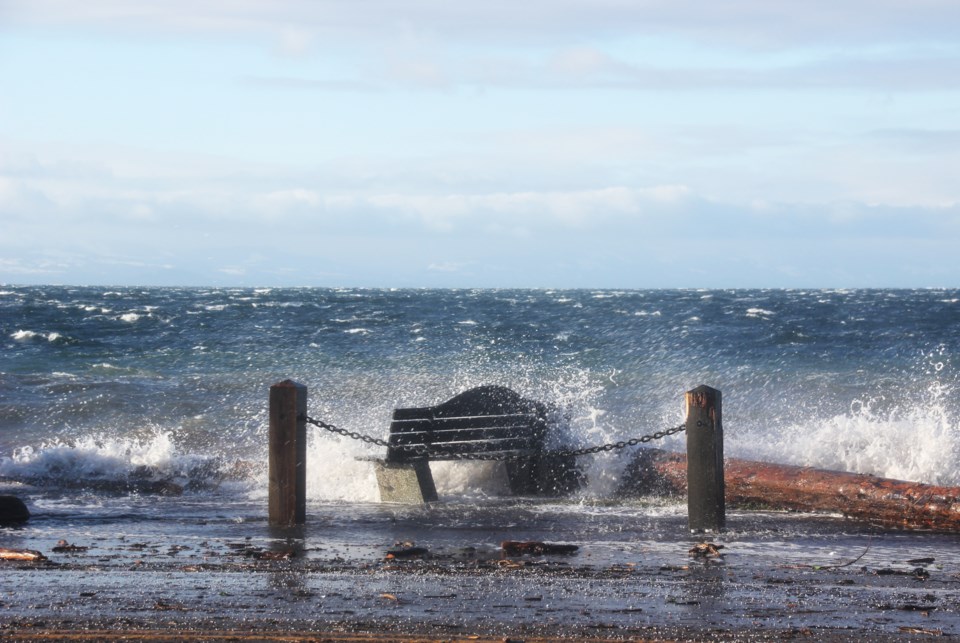A campaign to see Coast municipalities sign onto a proposed class action lawsuit against major oil companies for climate damages in B.C. is getting under way.
Legal and environmental groups launched the Sue Big Oil campaign in June, calling for B.C. municipalities to set aside one dollar per resident to launch the legal action, coordinated by Vancouver-based West Coast Environmental Law. In July, Vancouver City Council voted 6-5 to join the lawsuit, which has not been filed.
The B.C.-wide campaign is meant to recover a fair share of the costs climate change is imposing on municipalities in the form of wildfires, flooding and heat waves.
The Coast campaign’s formal launch is Sept. 18 from 11 a.m. to 12:30 p.m. at the Roberts Creek Legacy Garden. It is to feature speakers Candace Campo of shíshálh Nation, Fiona Koza of West Coast Environmental Law, Avi Lewis of UBC Centre for Climate Justice and Alaya Boisvert of the Sunshine Coast Climate Action Network.
A press release from the Sunshine Coast Sue Big Oil group points to the harms experienced from extreme weather of the past couple of years and climate change’s symptoms on the Coast – road and bridge washouts, damaged docks and water supply depletion among others. It also points to District of Sechelt’s decision in 2018 to join other B.C. communities in sending climate accountability letters to major oil companies.
A focus of the Coast’s campaign is to see if there is local appetite for joining the legal action. They’ll be collecting signatures for petitions that can be brought forward to local councils to ask them to participate in the suit, says Dawn Allen, one of the organizers of the local initiative.
“We acknowledge that this is a long haul kind of campaign, obviously. It’s still fantastic, just to get a lot of people to sign petitions who say, ‘Yeah, we’re pissed off about this. And we believe that the fossil fuel industry should be held to account.’
A survey released earlier this summer found that 69 per cent of B.C. residents support the campaign to sue ‘Big Oil.’ The Stratcom Strategic Communications poll found 39 per cent of respondents “strongly support” the lawsuit and another 30 per cent somewhat support it. Four per cent of respondents said they do not believe in climate change.
Between 1954 and 2010, just 90 companies were responsible for nearly two-thirds of all emissions from fossil fuels across the planet.
That fact has pushed 20 municipal governments in the United States to sue fossil fuel companies for their role in exacerbating climate change. But none of those cases has been decided, Andrew Gage, a staff lawyer for West Coast Environmental Law told Glacier Media last month.
In B.C., more cities than just Vancouver would need to sign on before the legal action could be considered a class action.
“One of the things that the courts will look to in deciding whether a class action should go ahead is whether other municipalities would potentially file lawsuits on their own and whether it makes more sense to have them heard together,” Gage told Glacier Media.
The local effort is timely, with the local elections looming, acknowledges Allen and the group is planning on participating in all-candidates meetings. Their team has members from the Sunshine Coast Climate Action Network and the Sunshine Coast Conservation Association and has been in close communication with Alliance4Democracy, which is hosting a series of climate-focused all-candidates meetings at the end of the month.
The Sunshine Coast Sue Big Oil campaign had a soft launch at the Labour Day Picnic in Gibsons Sept. 5, where the petition at that event garnered about 45 signatures, said Allen.
– With files from Stefan Labbé, Glacier Media



